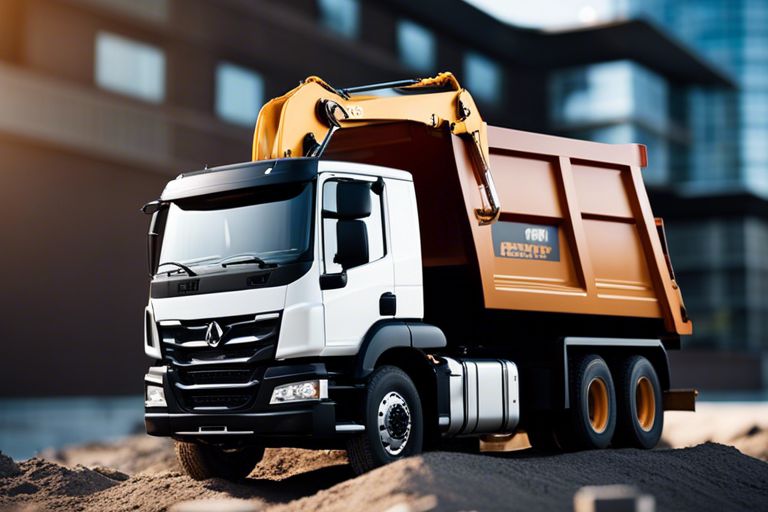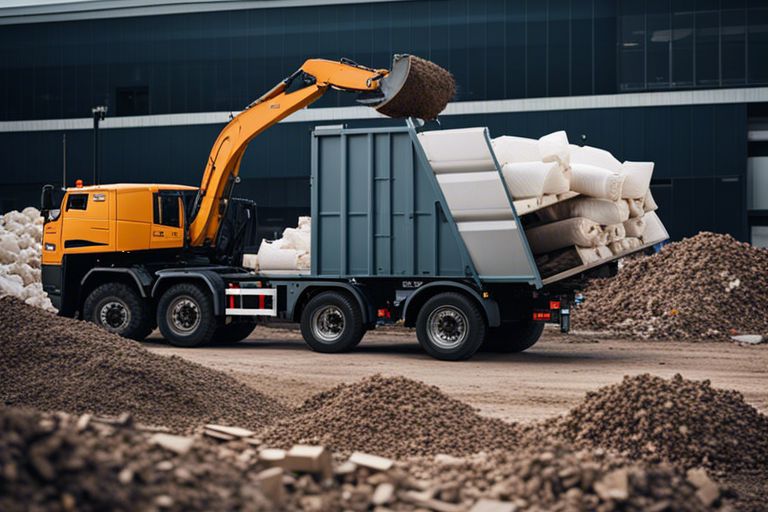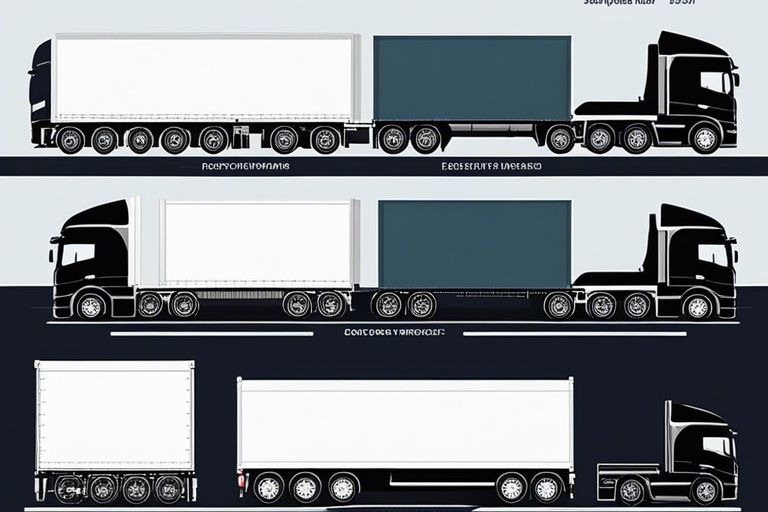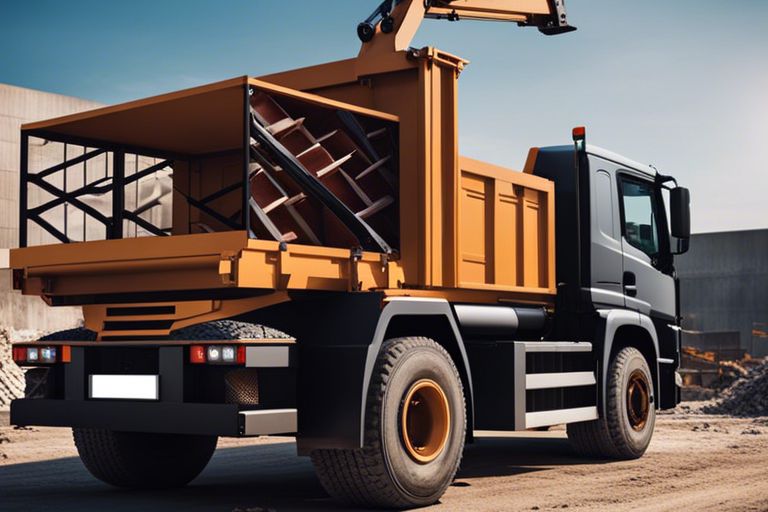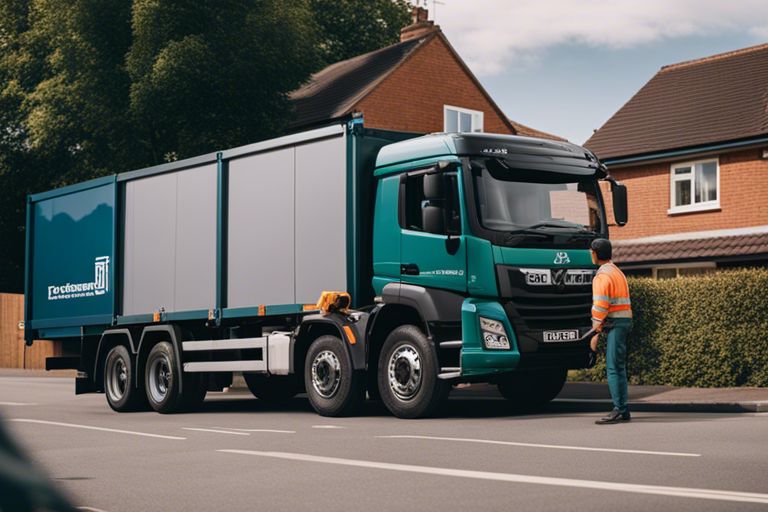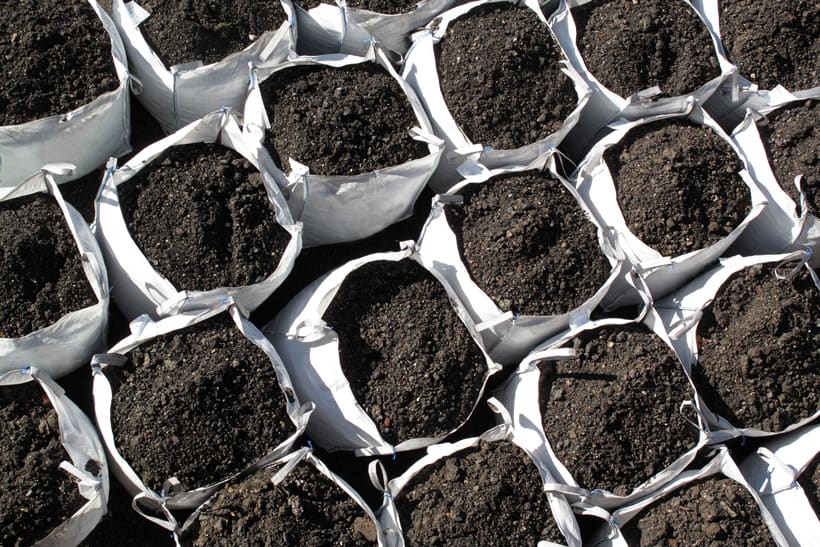Disposing of waste and debris during a residential project can be a daunting task, but understanding the difference between grab hire and skip hire can help you make the right choice for your specific needs. When it comes to residential projects, it’s crucial to consider factors such as cost, convenience, and safety. With grab hire, you have the advantage of having the waste collected from your property directly, reducing the risk of accidents and saving you time and effort. On the other hand, skip hire offers the benefit of having a designated area for waste disposal, but it may require a permit and can be less convenient in terms of accessibility. Ultimately, the decision depends on the scale of your project and your personal preferences, so let’s delve into the details to help you make an informed choice.
Key Takeaways:
- Flexibility: Grab hire offers greater flexibility in terms of waste disposal compared to skip hire, as it allows for waste to be collected from multiple locations on the residential property.
- Efficiency: For larger residential projects with heavy or bulky waste materials, grab hire is often more efficient as it can quickly load and remove the waste using a hydraulic arm, saving time and effort.
- Cost-effectiveness: While skip hire may be more suitable for smaller residential projects with limited waste, grab hire can be more cost-effective for larger projects that require frequent waste removal from various locations across the property.
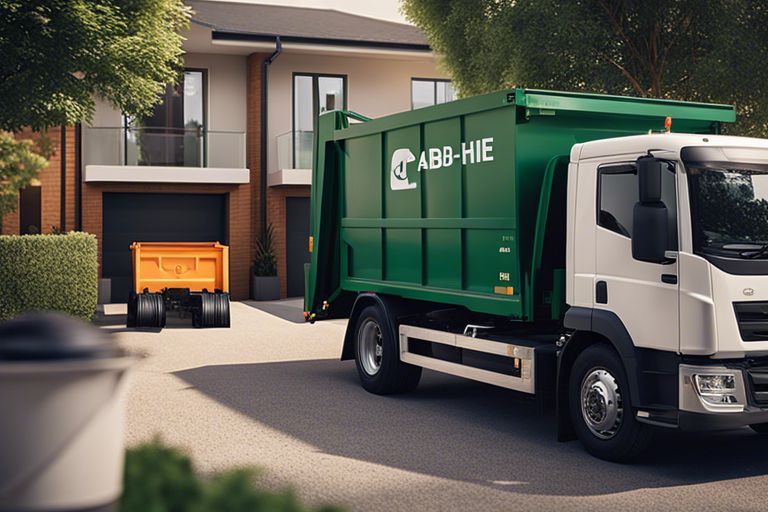
Understanding Grab Hire Services
When it comes to residential projects, it’s important to choose the right waste removal solution. In this chapter, you will learn about grab hire services and how they can benefit your project. For more information, you can also refer to this article on Grab Hire vs Skip Hire.
What is Grab Hire?
Grab hire is a convenient and cost-effective solution for removing waste from your residential project. It involves the use of a grab lorry equipped with a hydraulic arm and bucket, allowing for easy collection of large volumes of waste from your site. The grab lorry can reach over fences, walls, and other obstacles, making it easier to access waste in tight spaces and hard-to-reach areas. This makes grab hire a versatile option for residential projects, where space can be limited.
Advantages of Grab Hire for Residential Projects
One of the main advantages of grab hire for residential projects is its efficiency in removing large amounts of waste quickly. The grab lorry can pick up various types of waste, including concrete, soil, bricks, and general construction debris, in one go. This can save you time and effort compared to using traditional skip hire services. Additionally, the grab lorry can be positioned in a convenient location on your site, reducing the need for manual labour to move waste to a skip. This can improve the overall safety and efficiency of your project.
Limitations of Grab Hire
Despite its many advantages, grab hire may not be suitable for all residential projects. The grab lorry requires enough space to manoeuvre and access the waste on your site. If your project site has limited access or is located in a narrow street, the grab lorry may not be able to reach the waste efficiently. Additionally, if your waste is mainly loose and scattered, the grab arm may not be as effective in collecting it compared to a skip. It’s essential to consider the specific requirements of your project when deciding between grab hire and skip hire.
Exploring Skip Hire Options
When it comes to waste disposal for your residential project, skip hire is a popular option that you may be considering. Here, we will delve into the various aspects of skip hire to help you understand whether it is the best choice for your project.
What is Skip Hire?
Skip hire involves renting a large metal container, known as a skip, which is delivered to your location for you to fill with your waste. Once the skip is full, it will be collected by the hire company and the waste will be disposed of properly. Skips come in various sizes to accommodate different amounts of waste, making them suitable for both small and large residential projects.
Benefits of Choosing a Skip for Waste Disposal
One of the key advantages of skip hire is the convenience it offers. You can simply fill the skip at your own pace, without having to make multiple trips to a disposal site. Additionally, skips provide a safe and secure way to store your waste, minimizing the risk of accidents on your project site. Skip hire also allows you to effectively segregate different types of waste, making recycling efforts much easier.
Drawbacks of Skip Hire
While skip hire has its benefits, there are also some drawbacks to consider. The most significant drawback is the limited space that a skip occupies on your property, which can be particularly challenging if you have limited space available. Additionally, skips can be an eyesore and may not be suitable for projects with strict aesthetic requirements. Furthermore, you may incur additional costs if you need to extend the rental period or if the skip becomes overloaded.
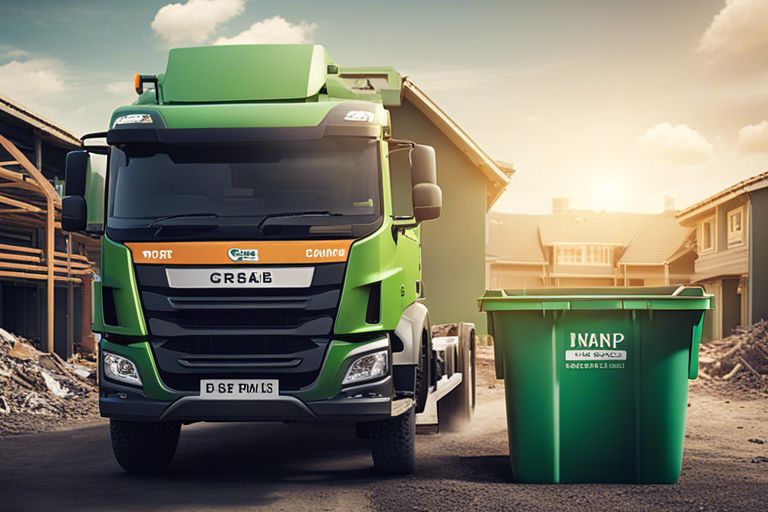
Comparing Grab Hire and Skip Hire
When it comes to residential projects, the choice between grab hire and skip hire can make a significant difference in the efficiency and cost-effectiveness of your waste removal process. To help you make an informed decision, let’s take a close look at the key factors to consider when choosing between the two options.
Grab lorry hire vs skip hire – Which is best for my project?
Cost Comparison
When it comes to cost, grab hire and skip hire differ in their pricing structures. While grab hire usually involves a single fee for the waste collection and disposal, skip hire may include additional charges for permits and potential overloading. However, the overall cost may depend on the volume and type of waste you need to remove. It’s essential to consider your budget and the specific requirements of your project when comparing the costs of grab hire and skip hire.
Space and Accessibility Considerations
One crucial factor to consider is the space and accessibility of your residential property. Grab hire offers the advantage of reaching over obstacles, making it suitable for sites with limited access or tight spaces. On the other hand, skip hire requires sufficient space for the skip to be placed and may not be suitable for properties with restricted access. Consider the layout of your project site and the ease of waste removal when making your decision.
Environmental Impact and Recycling
When it comes to the environmental impact, grab hire and skip hire differ in their waste disposal methods. With grab hire, the waste is loaded directly onto the lorry, reducing the risk of spillage and contamination. Additionally, reputable grab hire companies often have strict recycling policies, ensuring that a significant portion of the waste is recycled rather than being sent to landfills. On the other hand, skip hire may lead to potential environmental hazards if the waste is not properly contained. Consider the environmental implications of your choice and opt for the option that aligns with your commitment to sustainability.
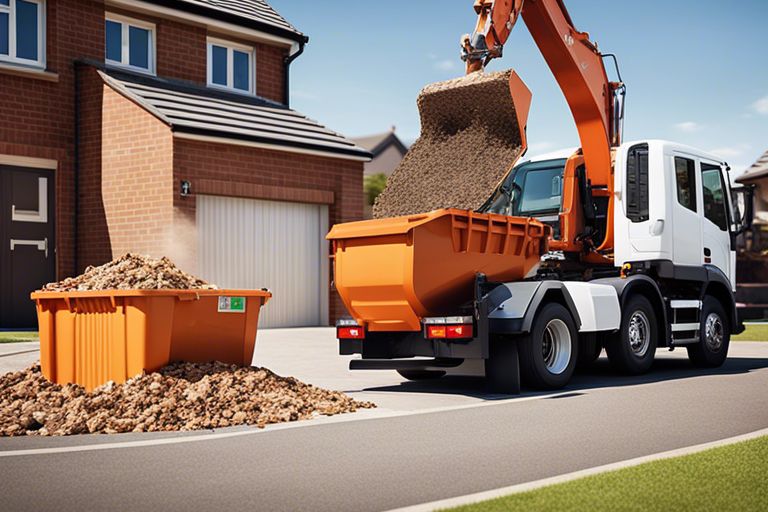
Making the Right Choice for Your Project
When it comes to deciding between grab hire and skip hire for your residential project, it’s important to carefully consider the specific needs of your project. To help you make the right choice, you can assess various factors that will impact the efficiency and cost-effectiveness of the waste removal process.
If you’re on the fence about which option suits your project best, you can take a look at this discussion on Which one suits your project? | The DP Group posted on … for additional insights.
Assessing Project Size and Waste Quantity
Before making a decision, consider the scope of your project and the amount of waste it will generate. If you have a large-scale project with a substantial amount of bulky waste, a grab hire might be the optimal choice for quickly removing materials such as soil, concrete, or hardcore from your site. On the other hand, for smaller, more manageable projects, a skip hire can offer a convenient and cost-effective solution for waste removal.
Legal and Permit Considerations
When it comes to waste removal, it’s important to ensure that you comply with local regulations and obtain any necessary permits. With grab hire, the responsibility for disposing of the waste lies with the company providing the service. This can provide peace of mind, knowing that the waste will be handled and disposed of legally and responsibly. On the other hand, with skip hire, you may need to secure a permit for placing the skip on public property. Be sure to check the regulations in your area to avoid any potential legal issues.
Convenience and Time Efficiency
Consider the level of convenience and time efficiency that each option offers for your project. A grab hire can be a quicker and more efficient solution for collecting waste directly from your site, particularly for heavy or bulky materials. This can save you time and effort in transporting waste to a skip. However, if you prefer the flexibility of having a skip on-site for an extended period, skip hire may be the more suitable choice for your project.
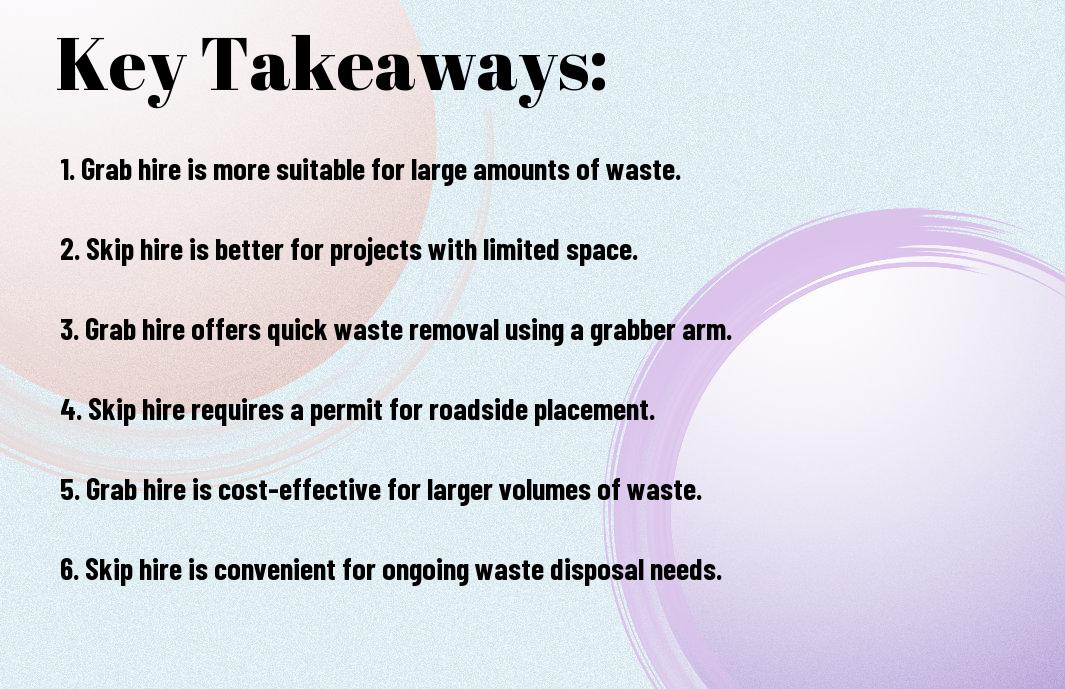
Conclusion
With this in mind, when it comes to residential projects, grab hire may be more suitable for your needs. It allows for easy removal of waste and can access hard-to-reach areas, making it ideal for smaller residential projects. Additionally, grab hire eliminates the need for obtaining a skip permit and can be more cost-effective for smaller amounts of waste. Ultimately, the choice between grab hire and skip hire will depend on the specific requirements of your project, but for residential projects, grab hire may offer a more practical and efficient solution.
FAQ
Q: What is Grab Hire?
A: Grab Hire is a waste removal service that uses a grab lorry equipped with a hydraulic grab arm to pick up and remove waste from a site.
Q: What is Skip Hire?
A: Skip Hire is a waste removal service that provides large metal containers (skips) for the temporary storage and transportation of waste.
Q: Which is more suitable for residential projects, Grab Hire or Skip Hire?
A: Grab Hire is generally more suitable for residential projects due to its ability to access hard-to-reach areas and pick up waste from awkward locations.
Q: What are the benefits of Grab Hire for residential projects?
A: The benefits of Grab Hire for residential projects include efficient removal of waste, minimal disruption to the area, and the ability to handle various types of waste materials.
Q: What are the benefits of Skip Hire for residential projects?
A: Skip Hire for residential projects offers the convenience of having a skip on-site for an extended period, allowing for easy disposal of waste as the project progresses.
Q: How does Grab Hire compare to Skip Hire in terms of cost for residential projects?
A: The cost of Grab Hire and Skip Hire for residential projects can vary depending on factors such as the amount of waste, the duration of hire, and the accessibility of the site. It is advisable to obtain quotes from both services to determine the most cost-effective option for your specific project.
Are there any restrictions on what can be disposed of using Grab Hire or Skip Hire for residential projects?
A: Both Grab Hire and Skip Hire services have restrictions on the types of waste that can be disposed of, including hazardous materials such as asbestos, chemicals, and electrical items. It is essential to check with the service provider for a complete list of prohibited items before booking either service for residential projects.

